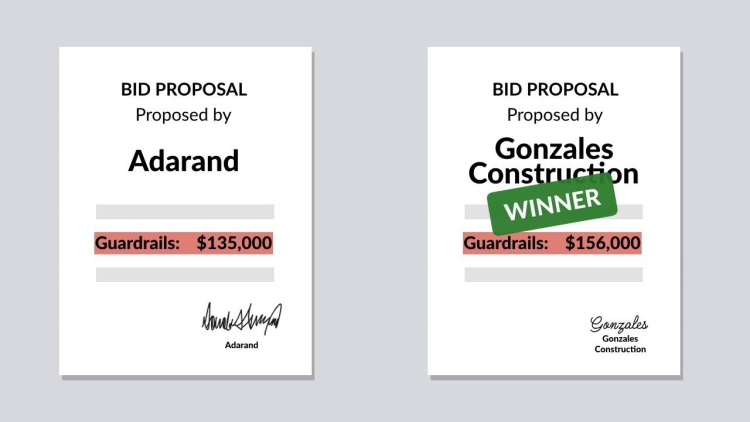Adarand Constructors, Inc. v. Peña
United States Supreme Court
515 U.S. 200 (1995)
- Written by Megan Petersen, JD
Facts
A federal government program provided a financial incentive for any prime contractors who hired subcontractors controlled by “socially and economically disadvantaged individuals” in the performance of federal government contracts. Individuals qualifying as “socially and economically disadvantaged” were presumed to include racial minorities. In 1989, the Central Federal Lands Highway Division awarded a prime contract for a construction project to Mountain Gravel & Construction Company (Mountain Gravel). Mountain Gravel then accepted bids from subcontractors for the guardrail portion of the project. Adarand Constructors, Inc. (Adarand) (plaintiff) submitted the lowest bid. However, Mountain Gravel awarded the subcontract to Gonzales Construction Company (Gonzales), a business controlled by “socially and economically disadvantaged individuals.” Mountain Gravel stated that it would not have awarded the subcontract to Gonzales were it not for the financial incentive it received under the federal government program. Adarand brought suit against Peña (defendant), the secretary of transportation, in federal district court. The district court and the court of appeals ruled in favor of Peña, and the United States Supreme Court granted certiorari.
Rule of Law
Issue
Holding and Reasoning (O’Connor, J.)
Concurrence (Thomas, J.)
Concurrence (Scalia, J.)
Dissent (Stevens, J.)
Dissent (Ginsburg, J.)
What to do next…
Here's why 910,000 law students have relied on our case briefs:
- Written by law professors and practitioners, not other law students. 47,100 briefs, keyed to 997 casebooks. Top-notch customer support.
- The right amount of information, includes the facts, issues, rule of law, holding and reasoning, and any concurrences and dissents.
- Access in your classes, works on your mobile and tablet. Massive library of related video lessons and high quality multiple-choice questions.
- Easy to use, uniform format for every case brief. Written in plain English, not in legalese. Our briefs summarize and simplify; they don’t just repeat the court’s language.





